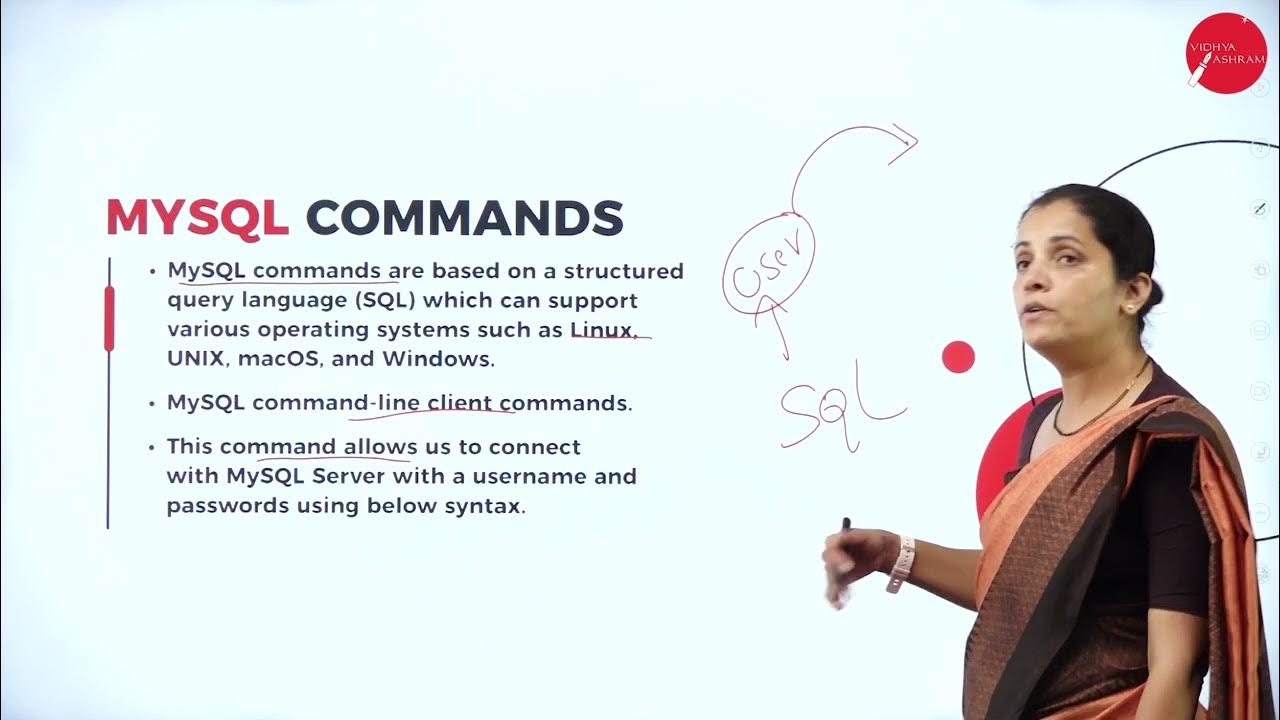MySQL vs PostgreSQL
Summary
TLDRThis video script explores the choice between MySQL and PostgreSQL, two popular relational databases. It highlights their similarities, including SQL support, replication, clustering, a variety of data types, and extensibility. The differences are also outlined, such as MySQL's speed and simplicity, contrasting with PostgreSQL's advanced SQL features, full ACID compliance, and high extensibility. The script emphasizes the importance of selecting the right database based on project needs and the impact it can have on performance and development experience.
Takeaways
- 😀 MySQL and PostgreSQL are both relational database management systems that organize and store data in a structured manner with rows and columns.
- 🔍 They both utilize SQL (Structured Query Language) to perform operations like querying, updating, and managing data.
- 🔄 Both offer replication and clustering, which allow for creating multiple copies of a database and distributing loads across servers for high availability and performance.
- 📊 MySQL and PostgreSQL provide a wide range of data types to accommodate various data requirements, offering flexibility in data storage and manipulation.
- 🔌 Extensions and plugins are available for both databases, allowing users to extend their functionality with additional features and capabilities.
- 🚀 MySQL is recognized for its speed, particularly for read-heavy operations, making it suitable for products focused on data retrieval.
- 🌐 MySQL's scalability allows it to efficiently handle both small projects and large systems with heavy traffic.
- 🛠 MySQL is known for its ease of use and simplicity, making it a popular choice for startups and developers who prefer straightforward database management.
- 🔧 MySQL supports pluggable storage engines, such as InnoDB (ACID compliant) and MyISAM (not ACID compliant), allowing users to choose the best storage type for their use case.
- 📜 PostgreSQL uses a more flexible license compared to MySQL, allowing for greater freedom in its use and integration into products.
- 🔍 PostgreSQL has a high level of SQL compliance, supporting advanced SQL features and complex queries, which is important for larger companies with complex database needs.
- 🛡️ PostgreSQL is fully ACID compliant, ensuring data integrity and reliable transaction execution, even in the face of errors.
- 🧩 PostgreSQL's extensibility allows for the addition of new data types, custom functions, and even new programming languages, adapting well to diverse projects.
- 🗂️ PostgreSQL supports a wider variety of data types compared to MySQL, including arrays, key-value pairs, and special data types for geometric and network data.
- 🔄 PostgreSQL uses Multi-Version Concurrency Control (MVCC), allowing for concurrent transactions without read or write conflicts, beneficial for databases with high transaction rates.
Q & A
What are the common features of MySQL and PostgreSQL as relational database management systems?
-MySQL and PostgreSQL both provide structured data organization through tables of rows and columns, use SQL for querying, updating, and managing data, offer replication and clustering for high availability and performance, provide a wide range of data types, and support extensions and plugins for additional functionality.
What does SQL stand for and what is its purpose?
-SQL stands for Structured Query Language. It is used by developers to perform various operations such as querying, updating, and managing data within a database using simple SQL statements.
Why is MySQL often recognized for its speed?
-MySQL is particularly fast for read-heavy operations, making it suitable for products where data retrieval is the main focus.
What is the difference between MySQL's storage engines and PostgreSQL's approach to storage?
-MySQL supports pluggable storage engines, such as InnoDB (ACID-compliant) and MyISAM (not ACID-compliant), allowing users to choose the storage type that best fits their use case. In contrast, PostgreSQL is fully ACID-compliant and does not offer pluggable storage engines.
Why might a developer choose MySQL over PostgreSQL for a startup project?
-MySQL tends to be easier to set up and manage than PostgreSQL, making it a popular choice for startups and developers who want a straightforward and effective relational database management system without complex configurations.
What licensing considerations might influence a decision between MySQL and PostgreSQL?
-MySQL is available under the GPL V2 license, which comes with specific rules and conditions. For certain use cases, a paid commercial license might be required. PostgreSQL uses the PostgreSQL License, which is more flexible and allows for more freedom in its use, including incorporation into proprietary products.
How does PostgreSQL's compliance with SQL standards differ from MySQL's?
-PostgreSQL has a high level of compliance with SQL standards, allowing it to handle more advanced and complex queries and supporting advanced SQL features such as window functions and table inheritance.
What does ACID compliance mean in the context of databases?
-ACID stands for Atomicity, Consistency, Isolation, and Durability. It is a set of properties that ensure reliable processing of database transactions, guaranteeing data integrity and the reliable execution of transactions even in the case of errors.
How is PostgreSQL's extensibility beneficial for companies with diverse project needs?
-PostgreSQL's high level of customization and extensibility allows for the addition of new data types, custom functions, and even new programming languages, making it adaptable to a wide variety of projects and suitable for companies with multiple teams working on different projects.
What is the significance of PostgreSQL's support for a wider variety of data types compared to MySQL?
-PostgreSQL's support for a wider range of data types, including arrays, HStore for key-value pairs, and special data types like geometric and network address types, allows for greater data complexity, which is beneficial for teams handling more complex data structures.
What is the role of MVCC in PostgreSQL and how does it benefit high transaction rate databases?
-MVCC, or Multi-Version Concurrency Control, in PostgreSQL allows for multiple transactions to occur concurrently without read or write conflicts. This feature is particularly useful for databases with high transaction rates, ensuring smooth and efficient transaction processing.
Outlines

此内容仅限付费用户访问。 请升级后访问。
立即升级Mindmap

此内容仅限付费用户访问。 请升级后访问。
立即升级Keywords

此内容仅限付费用户访问。 请升级后访问。
立即升级Highlights

此内容仅限付费用户访问。 请升级后访问。
立即升级Transcripts

此内容仅限付费用户访问。 请升级后访问。
立即升级5.0 / 5 (0 votes)






